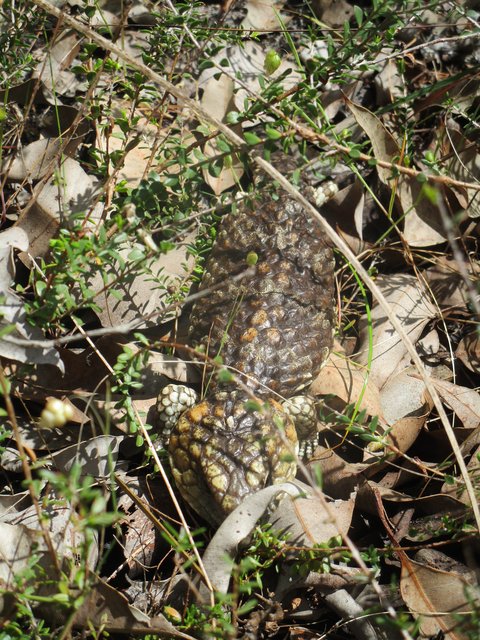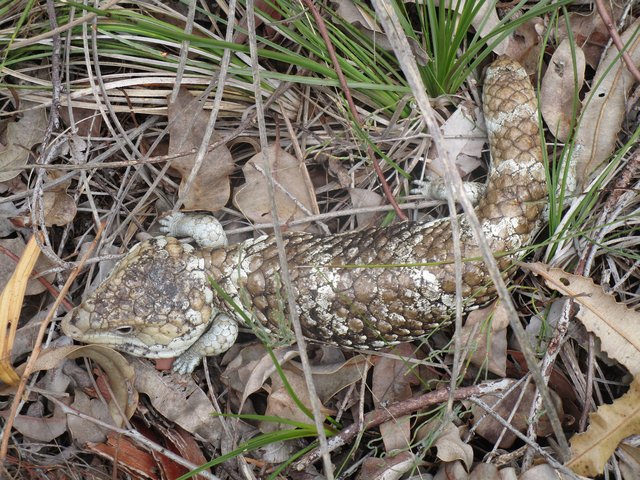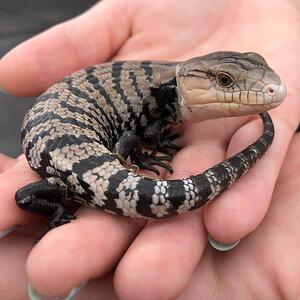Specifically the Western Blue Tongue Lizard.
With a scientific name Tiliqua occipitalis - not Tequila ![]()
Every time I venture into the aussie bush I will come across them. Though not if it is cold and wet.
Being reptiles they are cold blooded and needs the sun to heat their blood so they can move about without restriction.
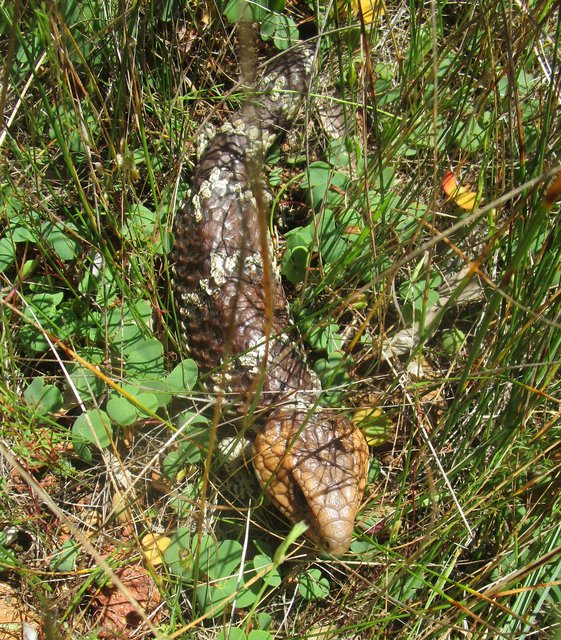
With brown bands running across it’s body it has very effective camouflage amongst the leaf litter. Often I have to stop placing my foot down because if I did then I would tread on a Blue Tongue.
They reach a length of 45 cm, 18". Have a wide body which can be flattened to increase the surface area available to be heated by the sun.

It has a blue tongue, which contrasts with the pink interior of its mouth. When threatened, it may open its mouth and stick out its tongue in a threat display. If the initial display is unsuccessful, and the predator or threat does not retreat, it may hiss and flatten out its body in an attempt to make itself look bigger.

It is diurnal, hunting for insect, spiders, and snails and foraging for plants and dead critters.
With small legs it is not an agile lizard, so its prey tends to be slow-moving. It has powerful jaws which allow it break up snail shells and the outer shell of beetles.

As I have said their camouflage is very effective.
I almost trod on this one yesterday.
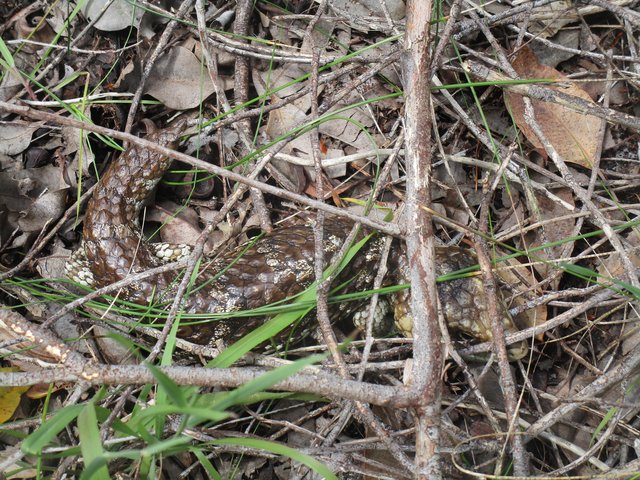
Blue-tongues don’t hibernate in winter, instead they go into what is called ‘brumation’, where their metabolism slows down considerably.
The brumation period happens over winter, and it’s during this time that blue-tongue lizards seek out a safe, dry and warm place to stay. They may hide under vegetation, in hollow logs, under debris and even in drain pipes.
The length of brumation varies between lizards, and can last up to 12 weeks.
On warm winter days they may be see basking in the sun, but by late September/early October, the brumation period ends and you’ll see them emerging and back in their usual location.

Blue tongues can live for 20 years in the wild. They give birth to an average of 5 live young between December and January. They will disperse after a few days.
Young Blue Tongue with flattened body.

A few other Blue Tongues I have come across.


